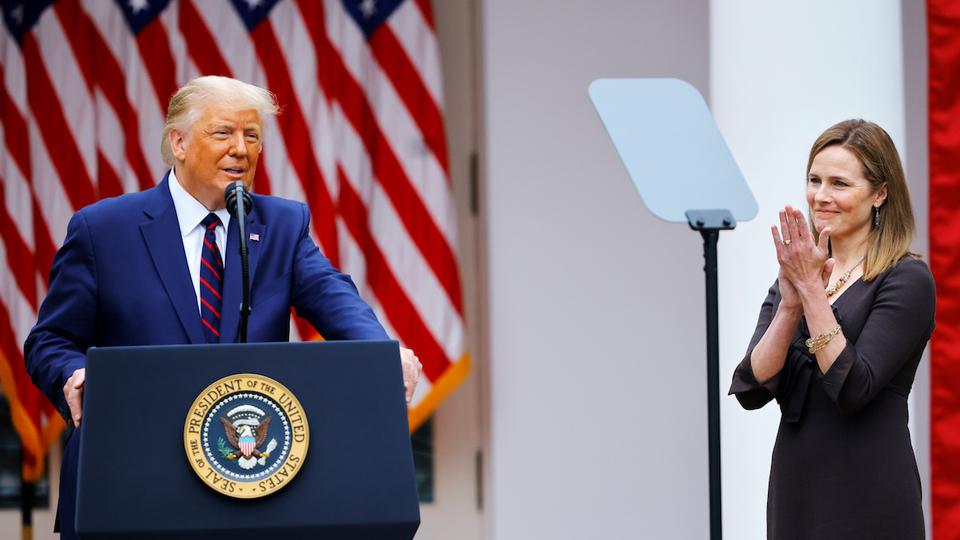US President Donald Trump has nominated Amy Coney Barrett, a favourite of social conservatives, to be the new Supreme Court justice.
Speaking by her side at the White House Rose Garden, Mr Trump described her as a “woman of unparalleled achievement”.
If confirmed by senators, Judge Barrett will replace liberal Justice Ruth Bader Ginsburg who died recently, aged 87.
The nomination will spark a bitter confirmation fight in the Senate as November’s presidential election looms.
Announcing Judge Barrett as his nominee on Saturday, President Trump described her as a “stellar scholar and judge” with “unyielding loyalty to the constitution”.
Democratic presidential candidate Joe Biden urged the Senate not to “act on this vacancy until after the American people select their next president and the next Congress”.
“The United States Constitution was designed to give the voters one chance to have their voice heard on who serves on the Court. That moment is now and their voice should be heard,” he said.
If Judge Barrett is confirmed, conservative-leaning justices will hold a 6-3 majority on the Supreme Court for the foreseeable future.
The 48-year-old would be the third justice appointed by the current Republican president, after Neil Gorsuch in 2017 and Brett Kavanaugh in 2018.
The court’s nine justices serve lifetime appointments, and their rulings can shape public policy on everything from gun and voting rights to abortion and campaign finance for decades.
In recent years, the court has expanded gay marriage to all 50 states, allowed for Mr Trump’s travel ban on mainly Muslim countries to be put in place, and delayed a US plan to cut carbon emissions.
Tricky position for Democrats
Amy Coney Barrett has been on Donald Trump’s shortlist for Supreme Court vacancies for some time, but the word was that she would be the most appropriate replacement for Ruth Bader Ginsburg.
As of last week, that was no longer a hypothetical scenario.
Even before Mr Trump reportedly settled on Judge Barrett as his pick, conservatives were rallying around the nominee, whoever it might be. And if they stick together, as all but two seem to be doing, her confirmation appears assured – whether it is before November’s election or in a “lame duck” Senate session afterward.
The choice of Judge Barrett puts Democrats in a tricky position.
They have to find a way of undermining support for the nominee without seeming to attack her Catholic faith or personal background – moves that could risk turning off some voters in November.
They will seek to delay the proceedings as best they can, while keeping their focus on issues like healthcare and abortion, which could be at the centre of future legal battles with Justice Barrett on a conservative-dominated court.
Then they have to hope Judge Barrett, or the Republicans, make some kind of critical error.
It is a tall order, but for the moment it is the only play they have.
Source: BBC














